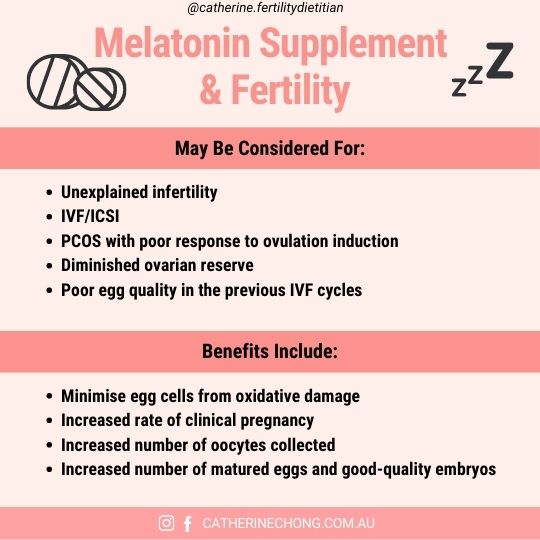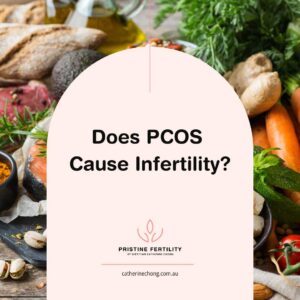Boosting Fertility: Can Melatonin Be the Missing Key?
When it comes to nurturing fertility, melatonin takes centre stage. This blog comprehensively explores the synergy between melatonin and fertility, backed by the latest scientific insights and research.
Understanding Melatonin and Its Role
Melatonin, often called the “sleep hormone,” is a potent antioxidant secreted by various tissues within the body. Its primary source is the pineal gland, a pea-sized structure in the brain. While melatonin levels surge at night, they are significantly lower during the day.
One of melatonin’s pivotal functions is safeguarding cells against oxidative stress. Acting as a vigilant scavenger, it seeks out harmful free radicals and counteracts their damaging effects. Beyond this role, melatonin has many other responsibilities, including synchronising our internal body clock, optimising cellular functions, and contributing to energy production.
The Intertwining Dance of Sleep and Fertility
Central to sleep is the circadian rhythm, often dubbed the “sleep-wake cycle.” Governed by a 24-hour pattern, our bodies ebb and flow in response to light and darkness.
Daytime brings wakefulness, while nights induce rest. The circadian rhythm significantly influences the reproductive system, orchestrating the secretion of crucial sex hormones. Conversely, sleep deprivation can unsettle hormonal harmony in both men and women. The cascade of stress triggered by sleep deficiency disrupts hormone regulation, with women bearing a hefty burden.
Studies show us a correlation between sleep deprivation and female infertility, marked by irregular menstrual cycles and a heightened risk of reproductive challenges—revealing a unique plight female shift workers face. A lack of sleep can stifle melatonin production for women working through the night, disrupting menstrual regularity and fertility. Further, melatonin production is subdued by dim light and digital screens, jeopardising sleep and circadian rhythms.
A comprehensive review of forty-two studies proposed physiological mechanisms, including circadian disruptions and genetic factors, play a role in reproductive well-being, deepening our understanding of sleep’s pattern n in shaping reproductive health.
Melatonin and Fertility Challenges as We Age

Aging adversely affects ovary function, impacting fertility as women get older, leaving modern women who defer childbirth feeling increasingly frustrated.
Melatonin appears to offer some support via its antioxidative and anti-inflammatory properties. Its presence within vital ovarian cells positions it to counter age-associated ovary deterioration.
Evidence suggests melatonin may be a potential treatment for age-related infertility, possibly preserving fertility, reducing IVF procedures, and addressing non-aging-related infertility challenges, hinting at melatonin’s promise. However, further research is required for a comprehensive understanding.
Empowering Female Fertility with Melatonin
Enter the world of assisted reproductive technology (ART) and the impact of melatonin becomes even more evident. An analysis of ten randomised controlled studies unearthed an interesting revelation: melatonin supplementation significantly bolsters the clinical pregnancy rate in ART cycles.
Furthermore, melatonin is linked to enhanced egg cell maturation and the emergence of high-quality embryos—an enticing prospect for women undergoing ART procedures. While the spotlight shines brightly on these achievements, live birth rates did not experience a significant upswing.
Melatonin’s Role in Male Fertility
Melatonin is an ally to male fertility as well. A study spotlighted a noteworthy connection between lower melatonin levels and heightened oxidative protein damage in the seminal plasma of men afflicted by azoospermia—an absence of measurable sperm in semen. This correlation emphasises melatonin’s role in male fertility, with infertile men exhibiting lower melatonin levels than their fertile counterparts.
Melatonin and Fertility: The Path Forward
In the sphere of prioritising egg and sperm health, melatonin is an asset. For those undergoing assisted fertility treatments, we strongly recommend consulting with your fertility specialist or medical practitioner before commencing any Melatonin supplementation.
The Bottom Line:
- Melatonin’s power comes from its antioxidative potency, body clock synchronisation, and energy-regulating roles.
- The disruption of melatonin production by sleep deprivation and external factors adds complexity to reproductive health.
- In assisted reproductive technology, melatonin supplementation aids sleep optimisation to improve fertility outcomes. However, seeking professional advice before commencing supplementation is advised.
Need More Help?
Embrace the transformative journey to enhance fertility with Dietitian Catherine Chong. Through tailored nutritional assessments and a personalised fertility nutrition plan, Catherine can guide you along her holistic 4-step egg optimising process—empowering you to reset your egg health.
You May Also Be Interested In
Disclaimer: Content on this website is provided for information purposes only and should not be replaced with medical advice. We recommend you discuss with your healthcare providers (doctor, dietitian, pharmacist, etc.) any medical questions for diagnosis and treatment, dietary plan, or use of any medications and nutritional supplements before you make any changes. DietitianChong Pty Ltd shall not bear any liability for reliance by any user on the materials contained on this website.







